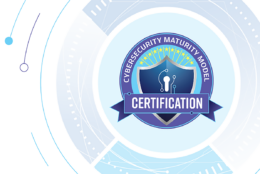Hubbard Radio Washington DC, LLC. All rights reserved. This website is not intended for users located within the European Economic Area.
On Air: Federal News Network
Cybersecurity
-
“My big thing in the last year has been how do I build the J-2? I need people, I need authorities, I need capability, I need funding,” said Col. Richard Leach.
July 05, 2024 -
The intelligence community is also pursuing initiatives in cloud computing, data management, zero trust cybersecurity and quantum-resistant encryption.
July 02, 2024 -
Not yet in effect, the Cybersecurity Maturity Model Certification program rule is now at the White House for review.
July 02, 2024 -
How is the State Department strengthening the cybersecurity workforce?
July 02, 2024 -
Where are agencies in their zero trust journey?
July 02, 2024 -
How are the CDC and TSA managing cloud adoption to meet their missions?
July 01, 2024 -
Guidehouse paid $7.6 million and Nan McKay & Associates paid $3.7 million to resovled claims that they violated the False Claims Act.
June 28, 2024 -
What’s next for FedRAMP? What about CISA’s SCuBA? How about secure AI adoption? Where do these efforts interconnect?
June 28, 2024 -
The new emerging technology prioritization framework will help determine which generative AI tools need to be pushed to the front of the line for approval.
June 27, 2024 -
CTMS hasn’t been the immediate shot in the arm some thought it would be, but DHS’s CIO says it’s a key part of the department’s future.
June 27, 2024 -
FSAFEDS is lifting a temporary suspension on reimbursement payments. But employees are expressing frustration with the lack of communication ahead of the pause.
June 26, 2024 -
To build a secure future, it is critical that the U.S. government invest in a resilient, defensible digital ecosystem.
June 26, 2024 -
The VA data systems affected by the ransomware attack are all now back online, but the downtime has created long backlogs that still need to be sorted out.
June 26, 2024 -
Modernizing digital services and making sure they stay secure requires good identity management.
June 25, 2024
ASK THE CIO

THURSDAYS @ 10 & 2 p.m.
Weekly interviews with federal agency chief information officers about the latest directives, challenges and successes. Follow Jason on Twitter. Subscribe on Apple Podcasts or Podcast One.
















